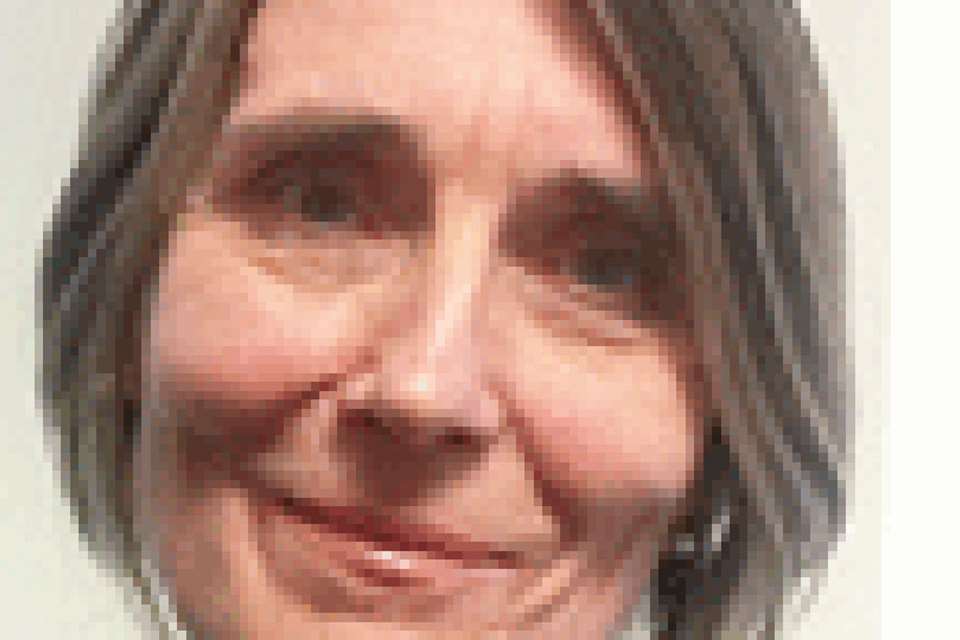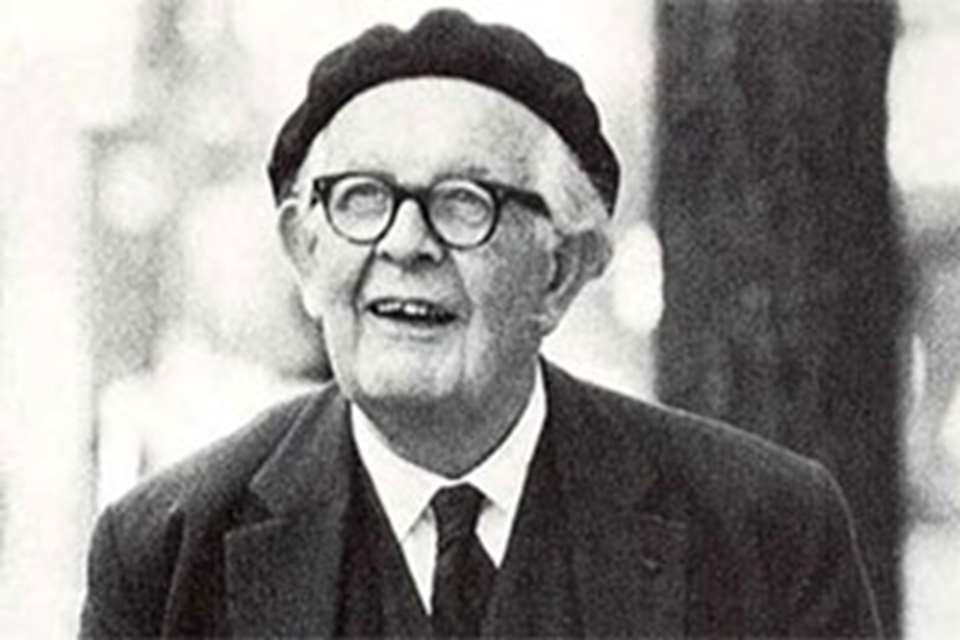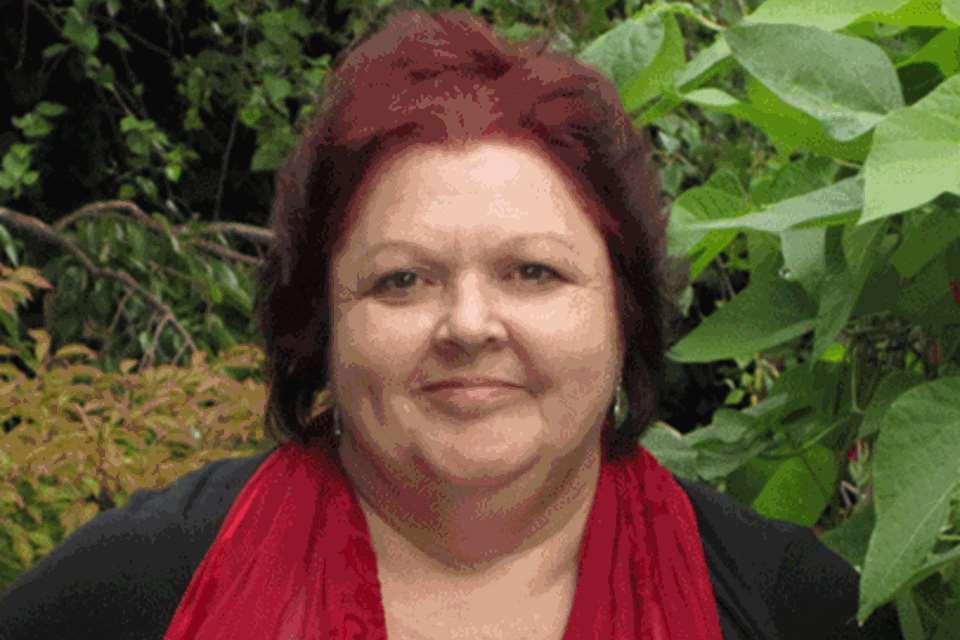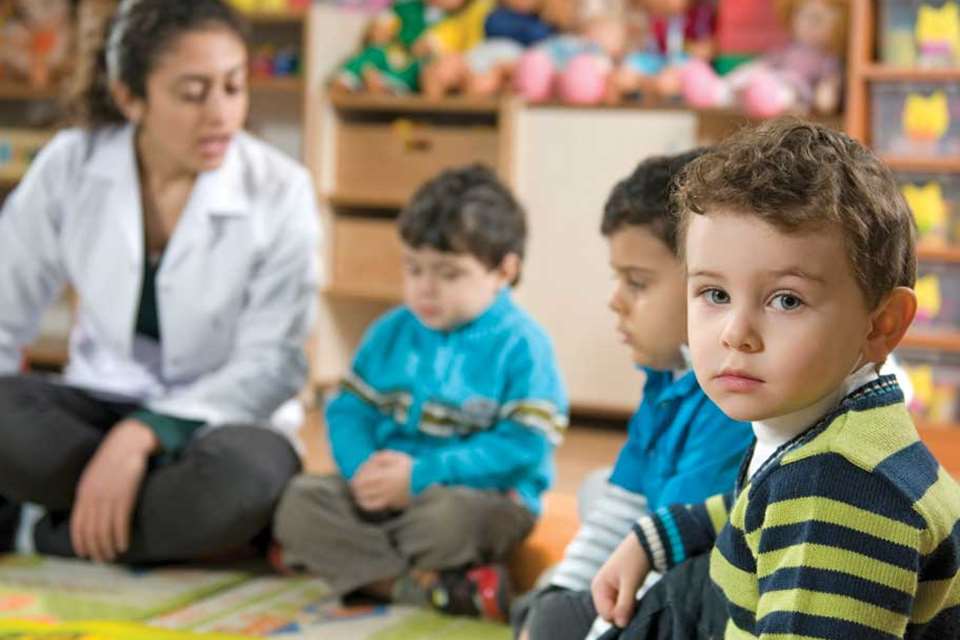EYFS Best Practice: A short history of ... Early education
Wendy Scott
Monday, January 26, 2015
Consultant Wendy Scott OBE was one of the leading figures within the early years sector to be recognised in the New Years Honours List for services to education. Here, she provides a brief history of nursery education in the UK as a celebration of the principled reflection, determined action and thoughtful provision that has led to innovative early years care and education across the nation and which has been acknowledged worldwide.
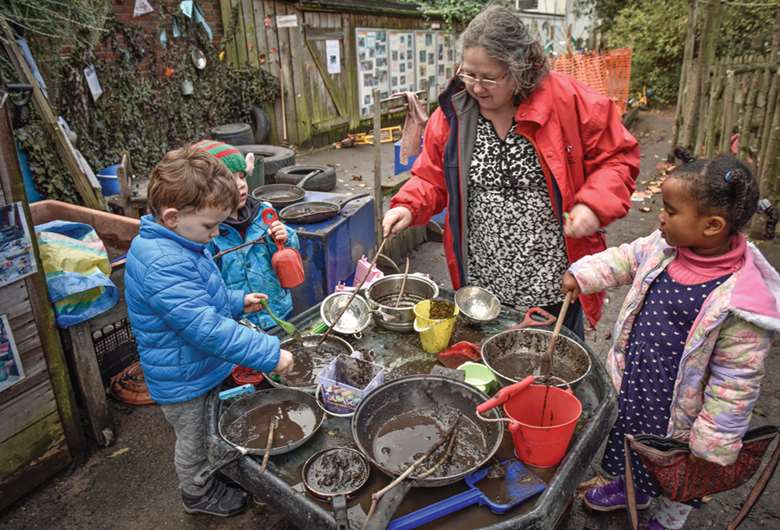
The approach to early childhood education in Britain is centred on the individual learner, in contrast to traditional subject-centred and teacher-directed approaches. The key underlying principles of early years pedagogy are based on a respect for the individual nature of each child, and the family and culture from which they come. Children's physical development and their personal, emotional and social development along with their communication skills are seen as crucial interacting elements supporting their intellectual development. Education in the early years is about sharing engaging, worthwhile experiences with children, linked to their interests and what they already know, thus building on their fascination and wonder at the world around them.
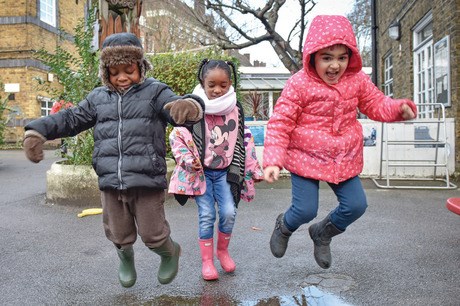
Children are motivated through active exploration of real and imaginary worlds; movement is essential for the growth of children's minds as well as their bodies. Through play, children explore ideas, feelings and relationships, extending and consolidating their experience. They can take risks and try things out, uninhibited by fear of failure.
Rich play is much more than recreation: it has a fundamental role in early childhood education, supplying the foundation upon which learning is built. It expands the limits of what is possible, and helps children to be creative, flexible and imaginative.
A well-planned learning environment supports children as active learners, provoking their interest and enquiry.
It is dynamic, changing in response to children's prevailing concerns. It links indoors, outdoors and the wider world of people, places and events, celebrates cultural and ethnic diversity, and promotes equal access to all areas of learning for each child, including those with special needs. Children who are willing to experiment in order to solve problems and to learn from mistakes gain a sense of mastery, which gives them a head start in learning.
The range and complexity of children's learning in the early years should never be underestimated. The adult role requires knowledge, skill and judgement, and the capacity for careful observation and interpretation. Effective educators tune in to what children are doing and interact sensitively to extend children's competencies and thinking. They decide when it is best to lead, play an equal part, follow, or stand back. They also ensure that they establish meaningful two-way communication with parents and carers, recognising and building on children's achievements at home.
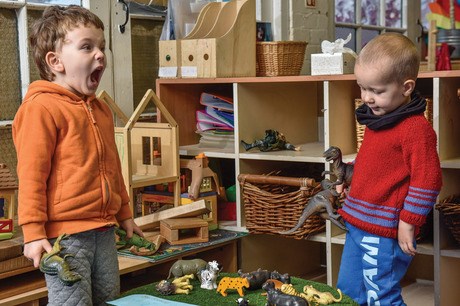
INSPIRING AND INFLUENTIAL
The Nursery School Association (now The British Association for Early Childhood Education, known as Early Education) was set up in 1923, with the aim of developing nursery education through specialist schools. Early officers of the association were Ramsey McDonald and Bertrand Russell.
Margaret McMillan was Early Education's first president. She and her sister established the Rachel McMillan Open Air Nursery School In Deptford in 1914, and the specialist teacher training college nearby in 1930.
Her pioneering work laid the foundation for a century of struggle to establish nursery education for all children. There was expansion in the war years, and again in the 1970s, when Margaret Thatcher was education secretary, but this was never consolidated. However, the best nursery schools continue to be inspiring and influential, and many were at the core of the Early Excellence Centres introduced by Labour in 1997.
The Effective Provision of Pre-School Education (EPPE) project found that the highest quality provision was in maintained nursery schools and children's centres based on nursery schools. Some of these are now working as teaching schools, and the vast majority of maintained nursery schools have been judged good or outstanding by Ofsted - in 2014, 54 per cent were outstanding and 43 per cent were judged good (www.watchsted.com/analysis). However, numbers of maintained nursery schools in England are reducing, from a high of more than 500 to 413 now.
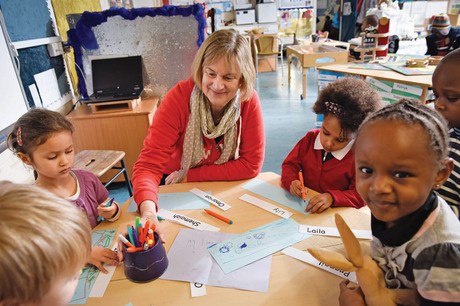
Many educators came to Britain in the 1960s and 1970s to learn from our child-centred approach to early years and primary education. In the late 1990s, The British Council supported a programme to help China to open up its very formal approach.
To release children's creativity and build their motivation, confidence and personal achievement, academics at Beijing University and other leading establishments looked around the world and decided to base their innovations on British practice.
UNICEF too has supported work to help developing countries provide effective early education, in line with the Framework for Action adopted by UNESCO in 2000, which included the development of early childhood care and education as the first of its six main goals.
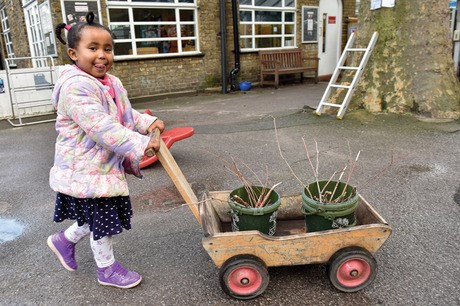
INFLUENTIAL REPORT RECOMMENDATIONS
Influential reports supporting the essential principles of early education in the UK have come out in every generation for the past century.
1908: Acland Report - 'School Attendance of Children Below the Age of Five'
- Under-fives in school should not be subjected to mental pressure or undue physical discipline, and the premises should be roomy, well lit, warm and ventilated.
- Formal lessons in reading, writing, and arithmetic should be excluded from the curriculum of younger infants - freedom of movement, constant change of occupation, frequent visits to the playground, and opportunities for sleep are essential.
1933: Hadow Report - 'Infant and Nursery Schools'
- Nursery children should be encouraged to experiment and explore and should not be expected to perform tasks that require 'fine work with hands and fingers'.
- The nursery school should provide an environment in which the health of the young child - physical, mental and moral - can be safeguarded.
- The curriculum of the infant school is to be thought of in terms of activity and experience rather than of knowledge to be acquired and facts to be stored.
- As far as possible, children should be enabled to teach themselves.
- Teachers should be free to plan and arrange their own work.
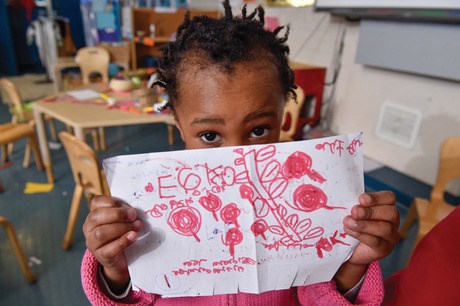
1967: Plowden Report - 'Children and their Primary Schools'
- At the heart of the educational process lies the child. Individual differences between children of the same age are so great that any class, however homogeneous it seems, must always be treated as a body of children needing individual and different attention.
- One of the main educational tasks of the primary school is to build on and strengthen children's intrinsic interest in learning and lead them to learn for themselves rather than from fear of disapproval or desire for praise; in play, children gradually develop concepts of causal relationships, and the power to discriminate, make judgements, analyse, synthesize, imagine and formulate.
- The report's recurring themes were individual learning, flexibility in the curriculum, the use of the environment, learning by discovery, and the importance of the evaluation of children's progress - teachers should not assume that only what is measurable is valuable.
- Knowledge of the manner in which children develop is of prime importance, both in avoiding educationally harmful practices and in introducing effective ones.
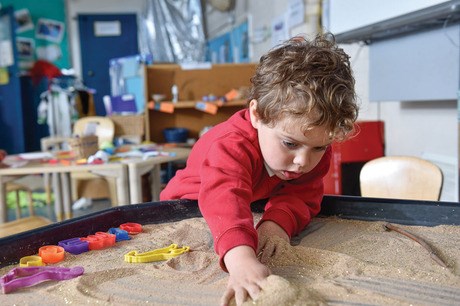
1989 onwards: the Education Select Committee
Under the chairmanship of Barry Sheerman MP, the committee brought out a series of reports endorsing traditional British early years practice. Graham Stuart MP, the current chair of the committee, continues to promote awareness of early years issues.
1989: 'The Education of Children Under Five - Aspects of Primary Education', HMI, Department of Education and Science
Examples of good practice set out by Her Majesty's Inspectorate, based on nine areas of experience and learning for under-fives: linguistic, aesthetic and creative, human and social, mathematical, moral, physical, scientific, technological and spiritual development.
1990: The Rumbold Report - 'Starting with Quality', HMSO
- Age range: in line with the Children Act 1989, early years means children up to seven or eight.
- Young children as learners: although all children follow sequential patterns of development, every child is unique; all children have competencies that need to be brought out and built upon; children's learning should be embedded in what is familiar; play is an essential and rich part of the learning process; learning should be a pleasurable and rewarding experience; learning should be primarily first-hand, experiential and active. Children need opportunities and space to explore and discover; young children are social beings and learning should take place in a social context.
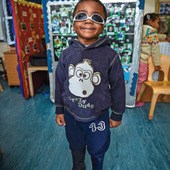 - Talk is central to the learning process: it should be reciprocal and often initiated and led by the child; independence and autonomy need to be promoted. Self-discipline should be encouraged; children should take responsibility for their learning; children need the security of a daily routine that works for them; there should also be provocations to explore the unexpected and opportunities for sustained engagement in an activity.
- Talk is central to the learning process: it should be reciprocal and often initiated and led by the child; independence and autonomy need to be promoted. Self-discipline should be encouraged; children should take responsibility for their learning; children need the security of a daily routine that works for them; there should also be provocations to explore the unexpected and opportunities for sustained engagement in an activity.
- The content of learning: young children need a broad, balanced and relevant curriculum; young children's development should be viewed as a whole and the curriculum should reflect an understanding of this; observation-based assessment is vital in planning an appropriate curriculum for every child; the process of learning is as important as the content and needs careful consideration in curriculum planning; children need certain skills and concepts in order to make sense of, and apply, their knowledge and understanding.
- Positive attitudes to learning should be developed; much knowledge can and should be presented in an integrated, cross-curricular way; there should be continuity and progression and a co-ordinated approach to planning.
- The context of learning: for young children, every setting is a source of learning, and the home is a particularly powerful learning environment; the content and setting of learning should aim to reflect the child's social and cultural background; the child should feel valued, and positive feelings about self that acknowledge the value of each child's cultural and religious life should be promoted.
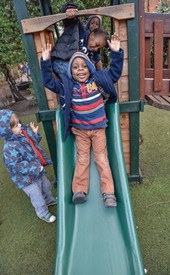 - The teaching environment should be open and accessible; a variety of learning situations is important; certain facilities are essential, particularly space, including access to an outdoor play area and adjacent toilets; young children need equipment that is appropriate and promotes their learning; the learning environment should be 'user-friendly', secure, comfortable and stimulating; a child's growing social competence needs support; collaboration with parents in a child's learning is essential.
- The teaching environment should be open and accessible; a variety of learning situations is important; certain facilities are essential, particularly space, including access to an outdoor play area and adjacent toilets; young children need equipment that is appropriate and promotes their learning; the learning environment should be 'user-friendly', secure, comfortable and stimulating; a child's growing social competence needs support; collaboration with parents in a child's learning is essential.
- All those involved in the learning process should be viewed as partners, and should collaborate in planning the curriculum; the role of the adult is highly significant in the learning process; all educators should recognise that their values, beliefs and attitudes may differ from those of the children they are educating. They need to be open-minded, evaluative, reflective and responsive.
- Ratios: a favourable ratio of adults to children is critical.
- Formal learning: the Rumbold Report warns explicitly that 'educators should guard against pressures that might lead them to over-concentration on formal teaching and upon the achievement of a specific set of targets'.
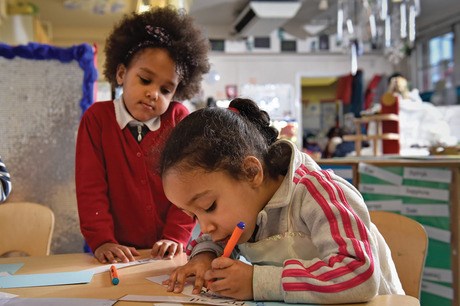
1994: 'Start Right', Sir Christopher Ball, RSA
- An appropriate early learning curriculum.
- Importance of the selection, training, and continuity of staff and high staff:child ratios.
- Buildings and equipment designed for early learning.
- A partnership role for parents.
1998: 'Quality in Diversity', Vicky Hurst and the Early Childhood Forum, National Children's Bureau
This was the outcome of unprecedented coming together of different organisations and different traditions that have found, within the themes of quality and diversity, a new way of speaking with one voice in the interests of all young children.
- A framework to enable practitioners to think about, understand, support and extend the learning of young children from birth to eight. It builds on the existing expertise of people working in a range of settings to create a shared language for early years practitioners, to help deepen understanding of how children learn, and to unify and consolidate the strengths of diverse settings and approaches, based around: belonging and connecting; being and becoming; contributing and participating; being active and expressing; thinking, imagining and understanding.
2001 onwards: Department for Education and Skills - Sure Start guidance
The Department for Education and Skills (which became known in 2007 as the Department for Children, Schools and Families) issued a flood of guidance as Sure Start developed, including Birth to Three Matters.
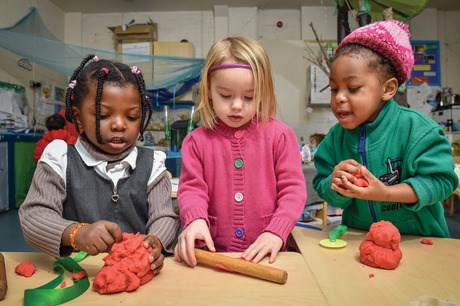
2008 and 2012: Early Learning Goals
Raising standards in early childhood institutions became priorities in policy making. The Desirable Learning Outcomes, introduced in 1996, were applied to children in the term after they became five, when they reached compulsory school age. They were soon replaced by the Early Learning Goals, which apply at the end of the Reception year, when many children are still only four. The outcomes duty laid on local authorities, and ill-advised measures of school readiness, lead to counterproductive pressures to show achievement, and also to the labelling of children. There are currently high levels of misdiagnosis of special educational needs at this stage, particularly in boys, who tend to develop later than girls, and summer-born children who are the youngest in their cohort.
The original Curriculum Guidance for the Foundation Stage (2000) advocated integrated learning. Since then, The Early Years Foundation Stage (EYFS) and its revised format, together with the EYFS Profile, emphasise literacy and numeracy as distinct curriculum areas. Expected standards in the Early Learning Goals for reading, writing and mathematics are set very high. Children's achievement in these goals has been consistently lower than others since the introduction of the profile, indicating that they are pitched too high.
Downward pressures from the phonics check and expectations of 'school readiness' are emphatically not part of our heritage of quality early years education and not consistent with effective pedagogy for children from birth to seven. Proposals for a baseline check on entry to school raise further concerns about downward pressures distorting effective provision at this crucial stage.
Government interest in early years education is resulting in simplistic and unrealistic demands for accountability that restrict and distort children's learning, and is thus counterproductive. Strong recommendations for staff training made by Professor Cathy Nutbrown in 2012 have been largely ignored. However, the following are useful.
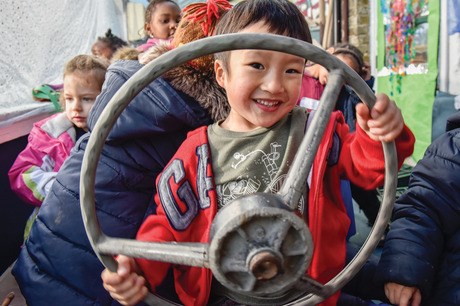
2011: 'The Early Years - Foundations for Life, Health and Learning', Clare Tickell
Reminds us of the importance of involving parents, and of children's entitlement to a broad and balanced curriculum based on the three prime areas: Personal, Social and Emotional Development, Physical Development and Communication and Language.
2012: EYFS
The four guiding principles that should shape early years practice are consistent with longstanding values and beliefs in Britain. They survive in current guidance and should underpin everything that we offer young children, whatever the setting.
- Every child is a unique child, who is learning constantly and can be resilient, capable, confident and self-assured.
- Children learn to be strong and independent through positive relationships.
- Children learn and develop well in enabling environments, in which their experiences respond to their individual needs and there is a strong partnership between staff and parents and/or carers.
- Children develop/learn in different ways and at different rates.
CONCLUSION
Policy in Scotland, Wales and Northern Ireland has generally supported what we know about early learning more effectively than recent developments in England, but there are problems across the UK, compounded by current financial constraints.
It is, however, short-sighted to allow the best nursery provision and practice to falter. We need the insights, experience and dedication of highly qualified and experienced colleagues, especially leaders who specialise in early years care and education. They inspire as well as educate others, and provide excellent models of work with parents as well as with children, which should be endorsed not only in the EYFS, but throughout Key Stage 1. Indeed, informed early years pedagogy remains an effective stimulus to learning throughout life.
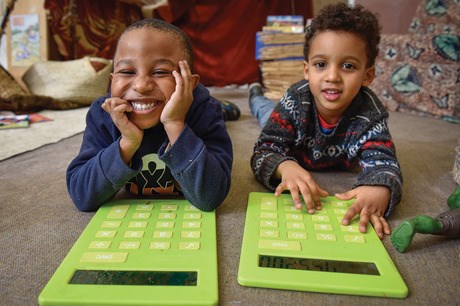
HISTORICAL INFLUENCES
Historical influences on thinking about early years pedagogy have a number of common features, including an interest in child development, insight into the value of play, and interpretation of the enabling role of the adult.
Jean-Jacques Rousseau (1712-1778) was one of the first people to advocate developmentally appropriate education emphasising the importance of expression rather than repression to produce a well-balanced, free-thinking child.
Robert Owen (1771-1858) established the first nursery school in the UK for the children of cotton mill workers in 1816. Children aged one to six were cared for while their parents and older siblings worked. Advocated free and unstructured play in the education of young children.
Friedrich Froebel (1782-1852) believed that 'play is the child's work' and that 'the child must be regarded as a living, loving and perceptive being. The unity of his life and its many different relationships must be taken into account, and he must be accepted for who he is, what he has, and what he will become'.
Rudolf Steiner (1861-1925) held that the first six or seven years are of vital importance when children should be developing their imagination and having a balanced experience of arts and sciences. Teachers should discuss ideas with children, and encourage them, leaving plenty of scope for choice and exploration.
Maria Montessori (1870-1952) highlighted the importance of respect for the child as an individual, and for children's spontaneous and independent learning. Teachers help children to develop to their fullest potential through observation, movement and exploration in a structured environment.
John Dewey (1859-1952) argued that the teacher is not an instructor of passive learners nor a referee in a competition but a guide and an arranger of the environment, for individuals who learn through exploration.
Rachel McMillan (1859-1917) and Margaret McMillan (1860-1931) recognised the value of first-hand experience and active learning through play. They emphasised the importance of health, and parents were closely involved in their open-air nursery which opened in Deptford in 1914.
Susan Isaacs (1885-1948) in 1924 founded the Malting House School, devising an environment and curriculum that was to stimulate the child's powers of curiosity and inquiry, and where children's intellectual development and emotional behaviour were to be observed and recorded.
Jean Piaget (1896-1980) believed that learning comes though active involvement in the environment. Children progress through three stages of learning: 'assimilation', 'accommodation', and 'equilibration'.
Lev Vygotsky (1896-1934) stressed the active role of the adult in maximising children's intellectual development. He contended that children succeed in performing tasks and solving problems in 'the zone of proximal development' when helped by a more experienced tutor.
Jerome Bruner (1915 -) sees the adult's role as 'scaffolding', supporting the child's learning and allowing responsibility for the activity to be gradually transferred to the learner until the child can operate independently at that level.
Loris Malaguzzi (1920-1994) wrote, 'Creativity becomes more visible when adults try to be more attentive to the cognitive processes of children than to the results they achieve in various fields of doing and understanding.'
Chris Athey (1924-2011) believed that children's conceptual development and learning is underpinned by schemas. She advocates a social constructivist approach that depends on adult insights and supports sustained shared thinking.
More: Lillian de Lissa, Dorothy Gardner, Lady Allen of Hurtwood, John Bowlby, Urie Bronfenbrenner, Mia Kellmer Pringle, Howard Gardner, Margaret Donaldson, Corinne Hutt, Elinor Goldschmied, David Weikart, Colwyn Trevarthen, Lilian Katz, Vivian Gussin Paley, Peter Moss, Ferre Laevers ... you can also add your own influences.
Groups: the Early Childhood Forum, The British Association for Early Childhood Education, TACTYC (the Association for Professional Development in Early Years), The National Campaign for Real Nursery Education, the Save Childhood Movement (see www.toomuchtoosoon.org/the-evidence for more information).
- For NW's 'pioneers' series, visit www.nurseryworld.co.uk/early-years-pioneers
MORE INFORMATION
-@font-face { font-family: "Calibri"; }p.MsoNormal, li.MsoNormal, div.MsoNormal { margin: 0cm 0cm 10pt; line-height: 115%; font-size: 11pt; font-family: Calibri; }a:link, span.MsoHyperlink { color: blue; text-decoration: underline; }a:visited, span.MsoHyperlinkFollowed { color: purple; text-decoration: underline; }p { margin-right: 0cm; margin-left: 0cm; font-size: 12pt; font-family: "Times New Roman"; }span.apple-converted-space { }.MsoChpDefault { font-size: 11pt; font-family: Calibri; }.MsoPapDefault { margin-bottom: 10pt; line-height: 115%; }div.WordSection1 { page: WordSection1; }
MORE INFORMATION
- www.educationengland.org.uk/documents/acland1908/
- www.educationengland.org.uk/documents/hadow1933/
- www.educationengland.org.uk/documents/plowden/
- Education of Children under Five, http://eric.ed.gov/?q=%22the+education+of+children+under+five%22&id=ED371884
- www.educationengland.org.uk/documents/rumbold/rumbold1990.html
- Start Right, http://eric.ed.gov/?id=ED372833
- www.amazon.co.uk/Quality-Diversity-Early-Learning-Practitioners/dp/190099030X
- Birth to Three Matters, www.foundationyears.org.uk/files/2012/04/Birth-to-Three-Matters-Booklet.pdf
- Birth to Three Matters: a literature review, http://webarchive.nationalarchives.gov.uk/20130401151715/https:/www.education.gov.uk/publications/eOrderingDownload/RR444.pdf
- www.foundationyears.org.uk/files/2014/05/eyfs_statutory_framework_march_2012.pdf
- Curriculum Guidance for the Foundation Stage (2000) http://webarchive.nationalarchives.gov.uk/20040117082828/http://dfes.gov.uk/foundationstage/pdfs/foundation_stage.pdf
- Revised EYFS Profile, www.foundationyears.org.uk/2012/11/publication-of-eyfs-profile-handbook-and-eyfs-profile-exemplification-materials/
- Tickell review, www.gov.uk/government/uploads/system/uploads/attachment_data/file/180919/DFE-00177-2011.pdf
- EYFS 2012 http://webarchive.nationalarchives.gov.uk/20130401151715/https://www.education.gov.uk/publications/eOrderingDownload/EYFS%20Statutory%20Framework.pdf
- Early education pioneers, www.nurseryworld.co.uk/early-years-pioneers



